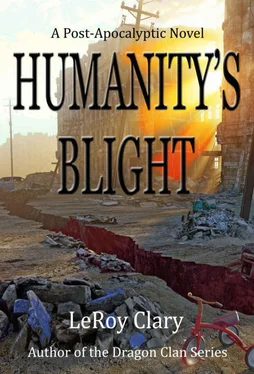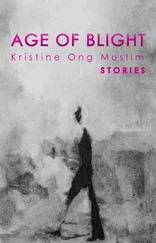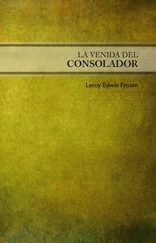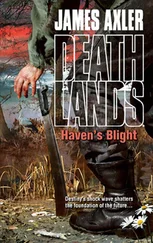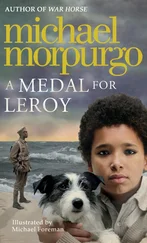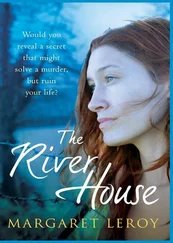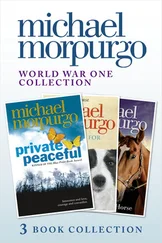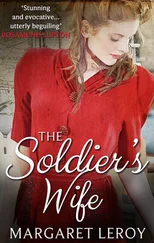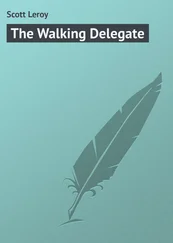Before I could duck behind the tree trunk, a single shot rang out, but there was no flash from his gun. Instead, he fell as if struck by a hammer from behind.
Steve called softly, “Don’t shoot me.”
“I think there were only three,” I called back but didn’t move. Steve must have thrown the chair and scrambled out a side door to arrive in time for that last shot.
He moved into view. “Stay here. I’ll toss everything over the deck. Did you get a rowboat?”
“Waiting at the edge of the water.”
“Great. Get everything down there and get in the boat. Two trips to get it all there, at least. I’ll cover our backs.”
It took me three trips to carry it all to the boat, and he assisted on the last. The sacks were heavy. I tossed them into the bottom of the boat. My fingers fumbled to untie the knots that held the rope to the log while Steve stood with his back to me and watched for others. None came.
He climbed in, took the oars from me, and rowed us out into the water. We went beyond where a shot from a pistol was likely to hit us. He rowed directly for the Truant . I sat in the front of the boat, watching behind us, my gun in my hand. I briefly thought of the abandoned stuff waiting for us at the first house. We didn’t need it enough to go back.
We reached the boat to find Sue waiting, willingly taking the rope tied to the front of our rowboat and securing it as we climbed aboard. Steve took a few seconds to untie it, feed out more line, and tie it again as he said, “The rowboat will need room to move around.”
Sue looked at me and shrugged in wordless confusion at the nautical concept. I returned it. We had no idea what he was talking about. It had become a game with us. Steve ordered me to pull in the anchor while he hit the button to unfurl the jib. There was a brisk breeze. The sail filled instantly. He tightened the line to the corner of the jib and turned the wheel to take advantage of the wind. We were moving before the anchor was aboard.
Nobody talked. The Truant moved almost silently away from shore. Behind, we left a small wake and were picking up speed. Only a few minutes later, the first flashlights and lanterns appeared on the shore. It was either the friends of those we’d killed, or others drawn by the shooting. I held my fire.
I couldn’t hit them with a shot from a boat that bounced, swayed, and rolled. I’d have to learn to talk like a sailor, meaning to learn the terms, not using a minimum of two swearwords in every sentence. The point is, the deck of the boat was in constant movement. Even if it had been steady, the distance was too great for me to hit a target with a handgun. And the distance was increasing quickly as the Truant picked up speed.
Flashlights swung from side to side, searching the water for us. They found the kayaks and sank them with a few shots. Then they started a search of the area, certain we were stranded because of the kayaks.
Steve didn’t start the motor or raise the mail sail. We moved away like a whisper upon the sea.
Later, we sailed south, keeping to the center of the channel, without lights.
Sue asked, “Other than starting a small war, how did it go?”
Steve glanced at me and when I didn’t answer, he said, “Better in some ways than we expected. Not as good in others.”
“That’s not much of an answer.”
“Sorry,” he said. “Listen, I’m worried they might chase after us in a motorboat. Can you bring me a couple of blankets and a coat? It feels like rain coming, and I’ll stay out here tonight, just in case.”
“I’ll stay with you,” I offered, thinking of the raingear in the rowboat with the other supplies.
“No. Stay dressed and warm. Be ready but get some sleep. You’ll be at the helm tomorrow while I sleep. That goes for both of you.”
He had a way of giving orders while not antagonizing. We went inside. Sue had patched the window I’d broken so well no draft entered. The cabin was warm, and that reminded me that we needed propane. She went to the sink and filled a glass with water, then pointed to the U-shaped bench around the small table. She sat across from me.
“What happened back there?”
I relayed the first three houses and the little we’d set aside to bring back from them and had abandoned. Then came the story of the last house. I didn’t try to hide facts or shade what we’d done, but when they had opened fire at Steve, I had not felt any reluctance in shooting them in the back. Even as the story spilled from me, there was far too little emotion and regret. I was becoming emotionless, a killer without regrets or feelings. Serial killers had done less damage in their careers than me in the last four days. So much had happened. And was still happening.
That reminded me of my first rule that Sue and I had discussed so long ago—probably only three or four days ago when I considered it. Not really so long ago but it seemed like it. In the old days, a few weeks ago, four days was nothing.
In the woods outside the first cabin we’d raided, I had told her I wouldn’t kill anyone who was not trying to kill me. Or that I believe was about to harm me. That was the new rule of survival, I’d said. It hadn’t changed. I felt regret but little guilt about shooting those two an hour ago. Overall, I felt dead inside.
She watched me, what she could see of me in the dark. I didn’t sob or whimper. She shouldn’t have been able to tell I was crying. I suspected she knew.
I placed my forehead on my arm, like a child in grade school taking a quick nap on his desktop. I woke sitting up, a blanket tossed over my shoulders, the morning light gray from the heavy clouds that hung low. A light drizzle fell and made seeing through the windows fuzzy and indistinct.
Sue was curled up and asleep in the cushions across from me. Neither of us had spent a night in the bed at the bow. I slid out of the bench seat and went quietly to the hatch, or door, or whatever naval name the exit to the rear of the sailboat was called. Steve sat at the stern, the blankets around his shoulders and over his head like a hood. His eyes were red, his face pasty, and he’d been up twenty-four hours or more. At that time, he’d killed two men, his first and second.
I said gently, “Go get some sleep. Anything I need to know?”
He pointed to the GPS. “Try to stay on that route. If any vessel, I mean from a rowboat to a ship, comes on an intercept course with us, wake me.”
“I will.” There seemed to be no more to say.
“Thanks, Cap,” he muttered as he went below.
Sue joined meat the wheel a short while later, bowls of steaming oatmeal in both hands. She sat beside me and ate, her attention focused on the damp gray dawn as if she didn’t want to talk—at least not for a while. The light drizzle had coated every surface with a layer of moisture.
I ate slowly, not sure of what she would say to me, and fearful it might not reflect well. I’d confessed to killing two more people last night. My body-count was rising, and I wondered if Billy the Kid had once shared the same sort of feelings that consumed me.
Sue turned to me. “It’s so peaceful out here. With the fog and drizzle keeping all of the rest of the world hidden from us, and at the same time, we’re hidden from them,” she said. “A person could make believe all is right with the world.”
“A person with a wild imagination,” I said sourly, for no reason that she deserved.
She gave me one of those faint smiles that meant she hadn’t taken offense. “We’re alive. I’m here with you. On a boat where we’re safer than all but a few lucky people. Of all those still alive, I managed to find the one person that has feelings and regrets. Plus, he protects me. Life could be a lot worse. For both of us.”
Читать дальше
